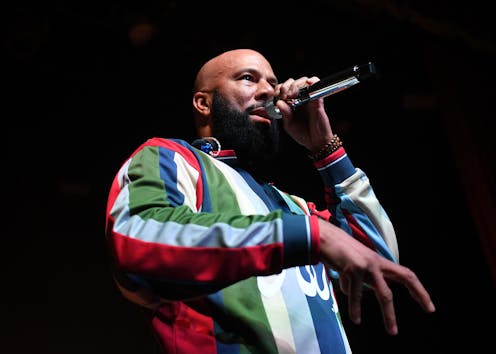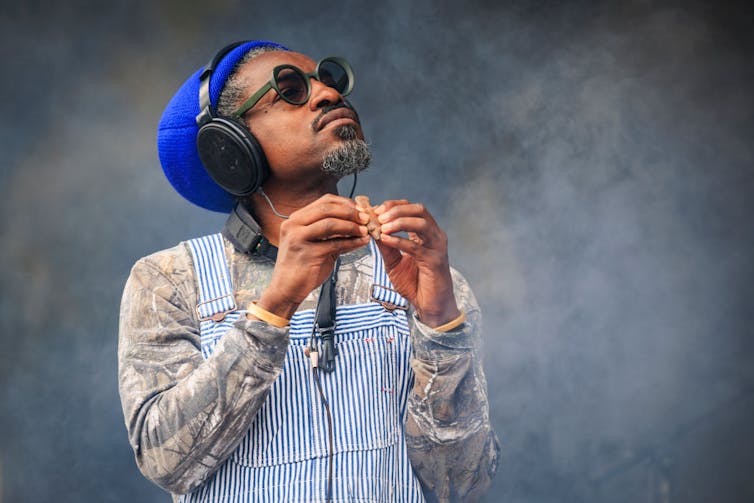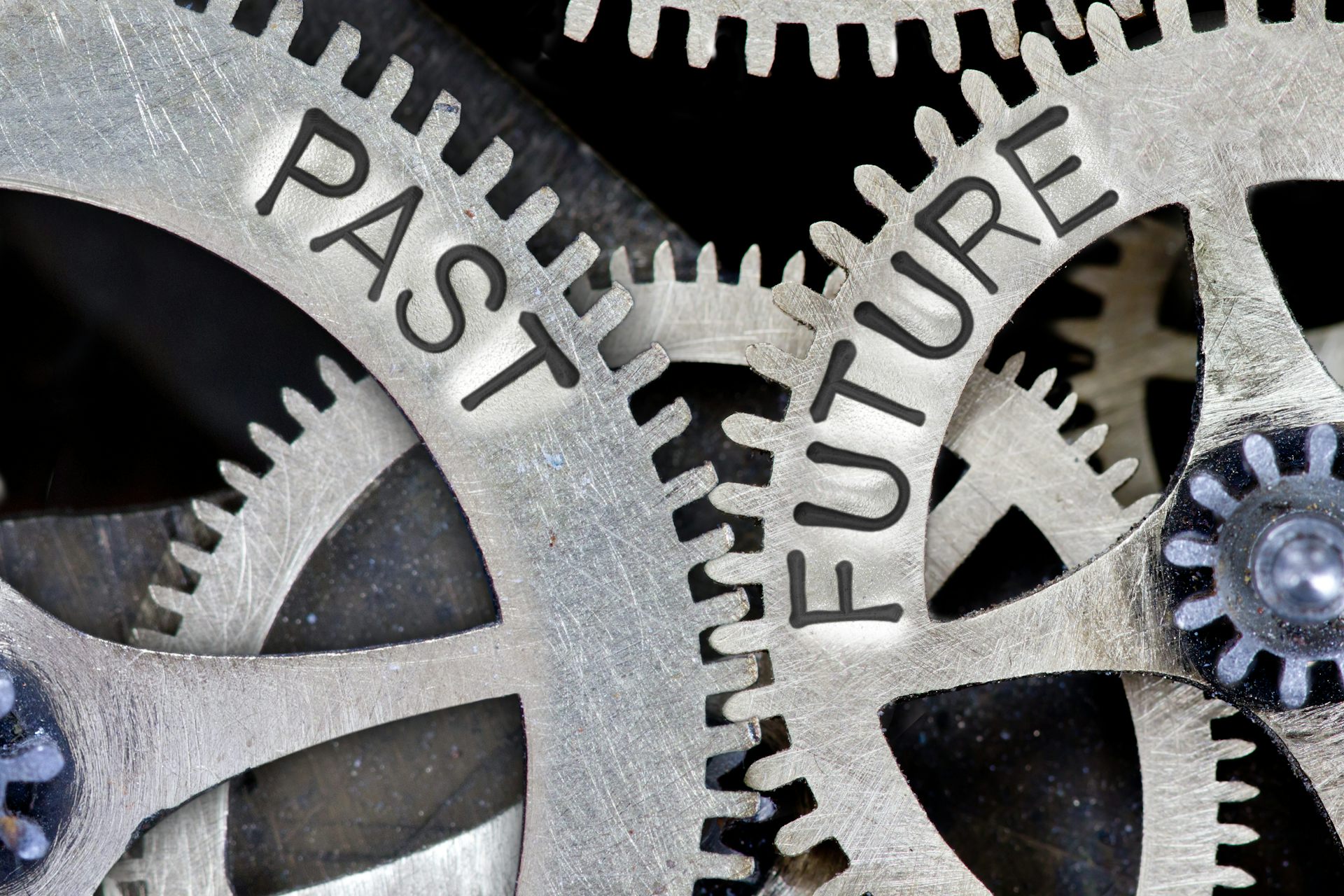As the stars of hip-hop’s golden age approach their golden years, some confront questions about whet
Hip-hop and youth culture have long been intertwined, creating an awkward situation for rappers who want to continue practicing their craft into their 50s, 60s and beyond.

It’s always awkward telling people what I do for a living. I’m a rapper. I also work as a professor of hip-hop.
I work at the intersection of artmaking and academic research. I write music as part of a greater effort to challenge antiquated ideas about learning, teaching and expertise.
But I assume the awkwardness in conversations about work is related to stereotypes of hip-hop culture. Among many, one of those assumptions is that hip-hop is only made for and by young people.
It’s no surprise that ageism exists in and about hip-hop culture; in the U.S., ageism is everywhere. But I would argue that ageism in hip-hop is especially strong because the first generation of rappers is only now reaching their golden years.
New rap categories
In August 2024, music producer 9th Wonder proposed a new “Adult Contemporary” category for rap music. A month prior, 52-year-old Common and 54-year-old producer Pete Rock had released “The Auditorium, Vol. 1.”
In response to 9th Wonder, legendary hip-hop artist Q-Tip warned on the social platform X that hip-hop fans might be turned off by a category with “adult” in the name. He suggested “Traditional Hip-Hop” instead, arguing that the music should all appear in “one pot,” lest it turn off younger listeners.
Whether it’s called Adult Contemporary or Traditional Hip-Hop, several hip-hop legends have recently released new music that could fit into this category. In July 2024, the legendary lyricist Rakim, who’s 56 years old, released “G.O.D.’S NETWORK (REB7RTH),” his first album in 15 years. Two months later, 54-year-old MC Lyte released “1 of 1,” her ninth studio album, and 56-year-old LL Cool J released “The Force,” his 14th studio album and his first in 11 years.
Growing pains
Since hip-hop emerged as a cultural force more than 50 years ago, people still seem to pigeonhole rap as music made by and for young people.
And it’s true that in hip-hop’s early days, teenagers were at the forefront of the fledgling movement.
A 1973 back-to-school party organized by a 15-year-old girl from the Bronx named Cindy Campbell is often credited with birthing hip-hop. Grand Wizzard Theodore was just 12 years old when he invented record scratching in 1977. The hip-hop careers of artists like Roxanne Shanté, Run-DMC and Ice Cube all began when they were teens.
Being closely intertwined with the perception of youth culture isn’t necessarily a good thing. It can compel critics to treat the music and its practitioners less seriously.
Rappers, no matter their age, can be dismissed or treated as childish or immature.
Call it growing pains: Unlike, say, classical or country, 50 years is a blip in the history of music. And for much of that time, critics regarded hip-hop as a passing fad. Then it was seen as an emergent subculture.
It’s only been a category at the Grammys since 1989, and only recently has it been recognized as a commercial and cultural force with a global reach.
Nowadays, equating hip-hop with youth culture confines it to an arena it has long outgrown.
Imposter syndrome grows
Nonetheless, as rappers age, some can seem uncomfortable about participating in a form that can be so easily dismissed.
In 2015, filmmaker Paul Iannacchino Jr. released a documentary, “Adult Rappers,” about working-class rap artists.
All the people interviewed for the film rap professionally but aren’t famous. They are mostly men. Most of them admit that they sidestep questions about what they do for a living. One unshakable takeaway is the embarrassment about their age.
Even famous rappers aren’t immune to this feeling. Before his move to instrumental flute music, André 3000, one of the greatest rappers of all time, lamented becoming the old rapper still making music beyond his prime.
“I remember, at like 25, saying, ‘I don’t want to be a 40-year-old rapper,’” he told The New York Times in 2014. “I’m 39 now, and I’m still standing by that. I’m such a fan that I don’t want to infiltrate it with old blood.”
André 3000 has been a gifted lyricist for decades, and remains so. If he feels this way, I can imagine that many other artists might feel that, at a certain age, they don’t belong to the culture anymore.
Or the culture no longer belongs to them.

Forever young?
Despite the fact that audiences have aged alongside the artists, it can still feel like there’s pressure to stay tapped in to youth culture, lest they create music that, to quote André 3000 more recently, lacks “fresh ingredients.”
This might encourage some aging artists to attempt to maintain a youthful sheen that will resonate with young audiences. Think of it as a pop culture version of Oscar Wilde’s novel “The Picture of Dorian Gray.”
In the novel, a man sells his soul for youth. Rather than physically aging, a painting of him ages instead, taking on the physical signs of his transgressions and pleasures.
It’s still easy to think of hip-hop as confined to a frame that bears all the marks of youthful longings, rebellion and sins: juvenile vitality, sprightly beauty and vigorous hedonism.
The expectations lead audiences to assume all artists have similar youthful aims and concerns. They can also lead artists to perform like they’re young and write about the concerns they had as youngsters, despite their respective ages. The hip-hop artists who can’t or choose not to pretend to be “forever young” are expected to “evolve” into moguls, actors, podcasters or reality TV personalities.
Of course, those assumptions only end up limiting what artists of all ages can accomplish.
Rappers at whatever level of celebrity you observe, famous and not famous, continue to create while embracing the inevitability of age. Nas, whose debut album, “Illmatic,” was released in 1994, has had an outstanding run of albums in the 2020s.
Jay-Z’s “4:44” showcased the rapper’s changing sensibilities that have seemingly evolved as he has aged.
North Carolina duo Little Brother’s entire catalog displays awareness of the absurdity of avoiding adulthood – outstandingly so, I might add, on their 2019 album, “May the Lord Watch.”
Even emerging rappers like Conway the Machine and 7xvethegenius seem to be able to balance burgeoning careers without caving to youth-obsessed pretenses.
Creating new, cleverly named musical categories to sidestep biases against aging probably won’t solve the issue. In hip-hop, as in so many American industries, ageism isn’t going away.
For that reason, my embrace of being an adult rapper will probably continue to make for awkward introductions.
But I’d rather have that conversation than pretend I’m something I’m not.
A.D. Carson does not work for, consult, own shares in or receive funding from any company or organization that would benefit from this article, and has disclosed no relevant affiliations beyond their academic appointment.
Read These Next
Iran will respond to US-Israeli strikes as existential threats to the regime – because they are
The latest attack on Iran goes far beyond previous operations by Israel and the US in both scale and…
Drug company ads are easy to blame for misleading patients and raising costs, but research shows the
Officials and policymakers say direct-to-consumer drug advertising encourages patients to seek treatments…
There aren’t enough geriatricians – here’s how older adults can still get the right care
A few simple strategies can help older adults convey their needs to their health care provider.





